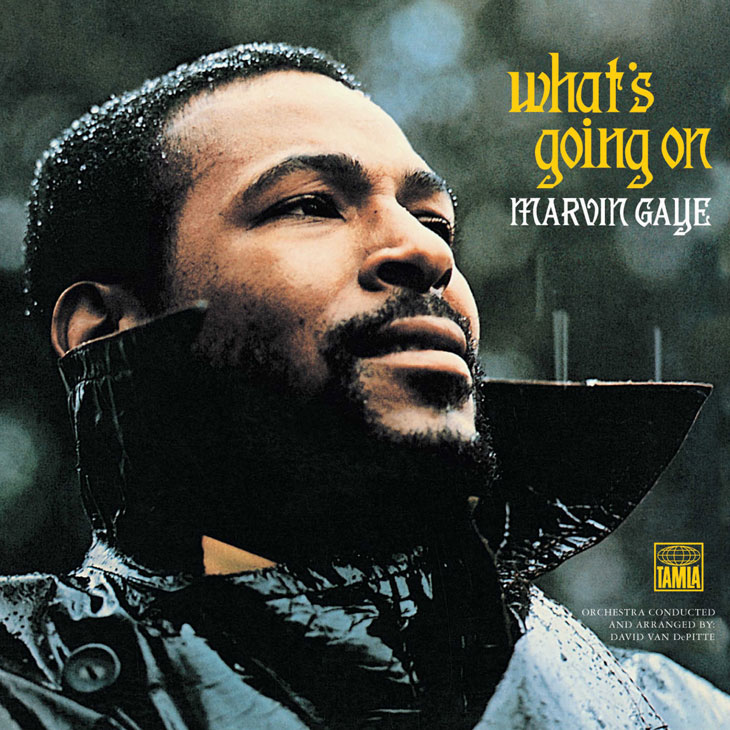Marvin Gaye–What’s Going On
It was late night in my senior year at Emerson College. I was in my chaotic dorm room and had brewed a cup of black tea that smelled like flowers. My audiophile equipment was the only thing I kept organized, and the necessary rituals had been performed for my listening pleasure.
Side one of the shiny vinyl sat under the stylus’s ministrations. I sat on the uncomfortable hardwood chair excitedly, turned off the light, fell into pitch black, and heard the chorus of party-goers that announce this record as if they were there. Then, that famous sax solo started. Despite having listened to this record hundreds of times, it was as though I’d heard the structure for the first time, which is what really makes this record so thoroughly powerful. The tracks are wonderful in isolation, but that structure….damn.
The structural basis is narratively and musically sexual: foreplay, buildup, climax, plateau, and come down. The themes, however, are mundane and sacred. From the title track, where Marvin Gaye mourns the state of affairs—drugs, racism, and a desire for escape—each track moves ever further from reality, to a state of ascension and spiritual ecstasy.
The first five tracks, while self-contained, all contain harmonic, melodic, and rhythmic threads tying them together. As the tracks progress, the tempo picks up; the bass twists and turns; the band speeds up; the instruments respond to each other, and Gaye’s voice takes on increasingly impassioned tones. By the time we reach “God Is Love,” the music is at its dynamic and emotional pitch—which abruptly transitions without warning into the musical centerpiece “Mercy Mercy Me (The Ecology).”
From that emotional peak, side two represents a continuous descent back into pain and sadness, leaving the divine to re-examine those issues that brought Gaye to a transcendent state. The record then ends cyclically on “Inner City Blues,” having dropped down to painful realities with a repetition of the first line: “Mother Mother, there’s so many of you crying.” Perfect symmetry.
Gaye is depressed by the state of affairs, torn by the darkness and pain surrounding him, but the pain is a result of a deep abiding love.
This album’s lyrical content is as potent and relevant today it was in ’71. While that is, in part, due to culture’s cyclical movement, the lasting strength is due to the ray of light this record indulges in through its structure and sense of love. Gaye is depressed by the state of affairs, torn by the darkness and pain surrounding him, but the pain is a result of a deep abiding love. Gaye’s expresses his sense of love in the divine spirit, and through his music. But that light, which sits right in the center of this record and illuminates the darkness in which it is mired, is what gives it such emotional power.
Whenever I listen to this record, especially in times of darkness, it opens my heart to wonder and see the love that exists in the ether of an often painful existence. The light of love, as cliché as it is, makes this a powerful record, because of, and not in spite of, its overwhelming pain and darkness. A love expressed through a balanced and compelling structure.
Until I’m Flying High in the Friendly Sky.













